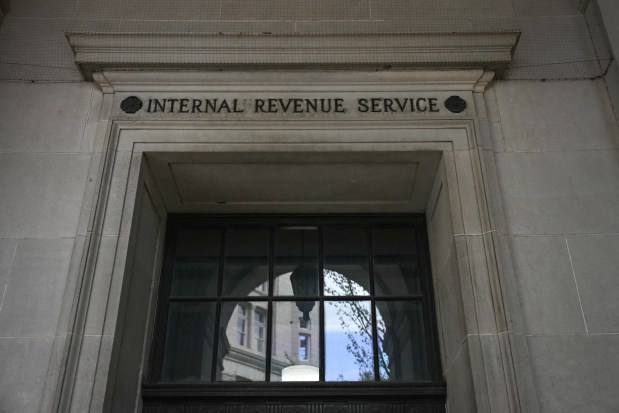At least 30,000 people have been killed so far, famine is on Gaza’s doorstep and children are dying of hunger. And yet, the U.S. government continues to rely on persuasion to urge Israel’s government to change course. This strategy has failed dramatically.
U.S. officials have made clear that, while Israel’s cause is just, its approach to this war has imposed unjustifiable suffering on the civilian population and undermined prospects for long-term peace and stability. If the U.S. government really wants this to change, it must stop blindly underwriting the war.
Officials in President Joe Biden’s administration like to point out that steady pressure on Israeli Prime Minister Benjamin Netanyahu has delivered small results, but it’s hard to take these claims seriously.
The U.S. government urged Israel to avoid a large ground invasion early on. Israel launched it anyway. It urged Israel not to carpet-bomb the south as it did in the north. It did anyway. The U.S. military urged Israel to use smaller, more precise weapons in Gaza’s dense urban areas. Israel’s military continued to drop unguided 2000-pound bombs anyway. The United States urged Israel not to conduct raids on hospitals. It did anyway.
The Biden administration has told Israel it must not reoccupy Gaza and must plan for an eventual two-state solution. Netanyahu has made crystal clear that his day-after plan is total occupation, and he openly scoffs at the idea of a Palestinian state.
Biden administration officials have repeatedly pleaded with Israel to allow enough lifesaving aid to enter Gaza to prevent famine and widespread outbreak of disease. And yet, the Israeli government has made it nearly impossible to deliver sufficient aid to a civilian population entirely within its control and at its mercy.
The Biden administration has stepped up its public criticism of Netanyahu’s government. On Sunday, Vice President Kamala Harris delivered the strongest words yet. “People in Gaza are starving,” she said. “The Israeli government must do more to significantly increase the flow of aid. No excuses.”
In December, Secretary of Defense Lloyd Austin warned that the extremely high civilian casualty rate risked driving civilians “into the arms of the enemy,” which would result in “a strategic defeat.” Last month, Biden himself said Israel’s military operations were “over the top.”
But these statements mean nothing when directly contradicted by what the U.S. government continues to do: protecting Israel from consequences on the world stage and providing it with the military aid that makes continuing this war possible.
Only a few weeks ago, the United States once again stood alone in vetoing a United Nations Security Council resolution calling for an immediate cease-fire, and it has escaped no one that most bombs dropped in Gaza are from the United States. In only a few months, Israel has destroyed more of Gaza’s infrastructure than three years of war did in Aleppo, Syria, putting Gaza’s suffering at historic proportions.
That destruction is made worse by the dearth of humanitarian support. Thanks to Israel’s obstruction, only a fraction of the aid needed is entering Gaza. The enclave’s 2.3 million residents are in dire need of food, clean water and health care. Absent rapid changes to the humanitarian situation, hundreds of thousands will starve to death. It’s no wonder then that the few distributions that occur turn into chaos.
The U.S. response was to airdrop about 38,000 meals into Gaza on March 2 and again on March 5 — each an expensive and dangerous venture amounting to less than the contents of one full truck by some estimates. It was little more than a gesture to make conflicted senior officials feel better about the role they are playing in America’s continued faux helplessness.
The United States is Israel’s most important partner and advocate on the world stage. Israel is America’s biggest recipient of military aid by far, to the tune of about $4 billion a year. It has received more than $300 billion in U.S. aid since its founding, more than 50% more than the next highest recipient. U.S. assistance accounts for some 15% of Israel’s defense budget.
For Israel, this translates to a pretty significant dependence on the United States for its ability to wage war. But you wouldn’t know it by how America is acting. Instead of using this leverage, the Biden administration has made clear that its support is unconditional.
The closest it has gotten to conditioning aid was a directive last month to authorize cutting off military aid to countries that violate international protections of civilians. But this is a cynical gesture since U.S. law already requires such, and this redundant provision is still not being applied to condition support to Israel.
With Netanyahu counting on this war to keep him in power, no amount of friendly cajoling is going to persuade him. He will not change course until refusing to do so costs him. The United States is uniquely positioned to impose that cost by making U.S. military assistance contingent on Israel heeding America’s most urgent demands.
We have the leverage, and we have the laws. If we don’t have the will, we will pay the costs, now and for a long time to come.
Elizabeth Shackelford is a foreign affairs columnist for the Chicago Tribune. She was previously a U.S. diplomat and is the author of “The Dissent Channel: American Diplomacy in a Dishonest Age.”



